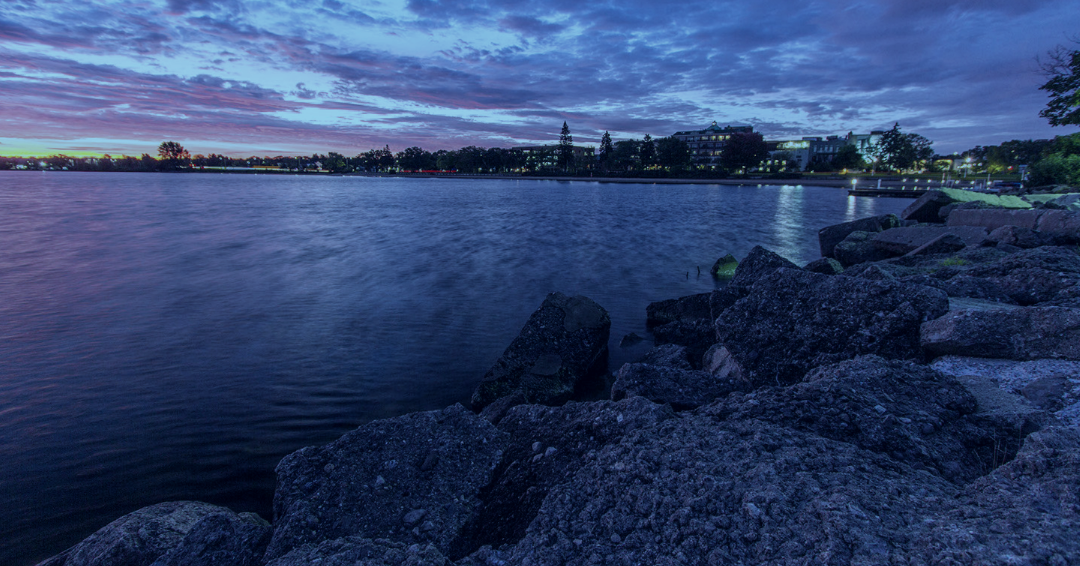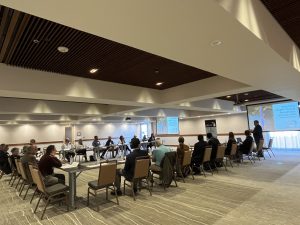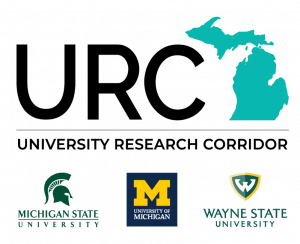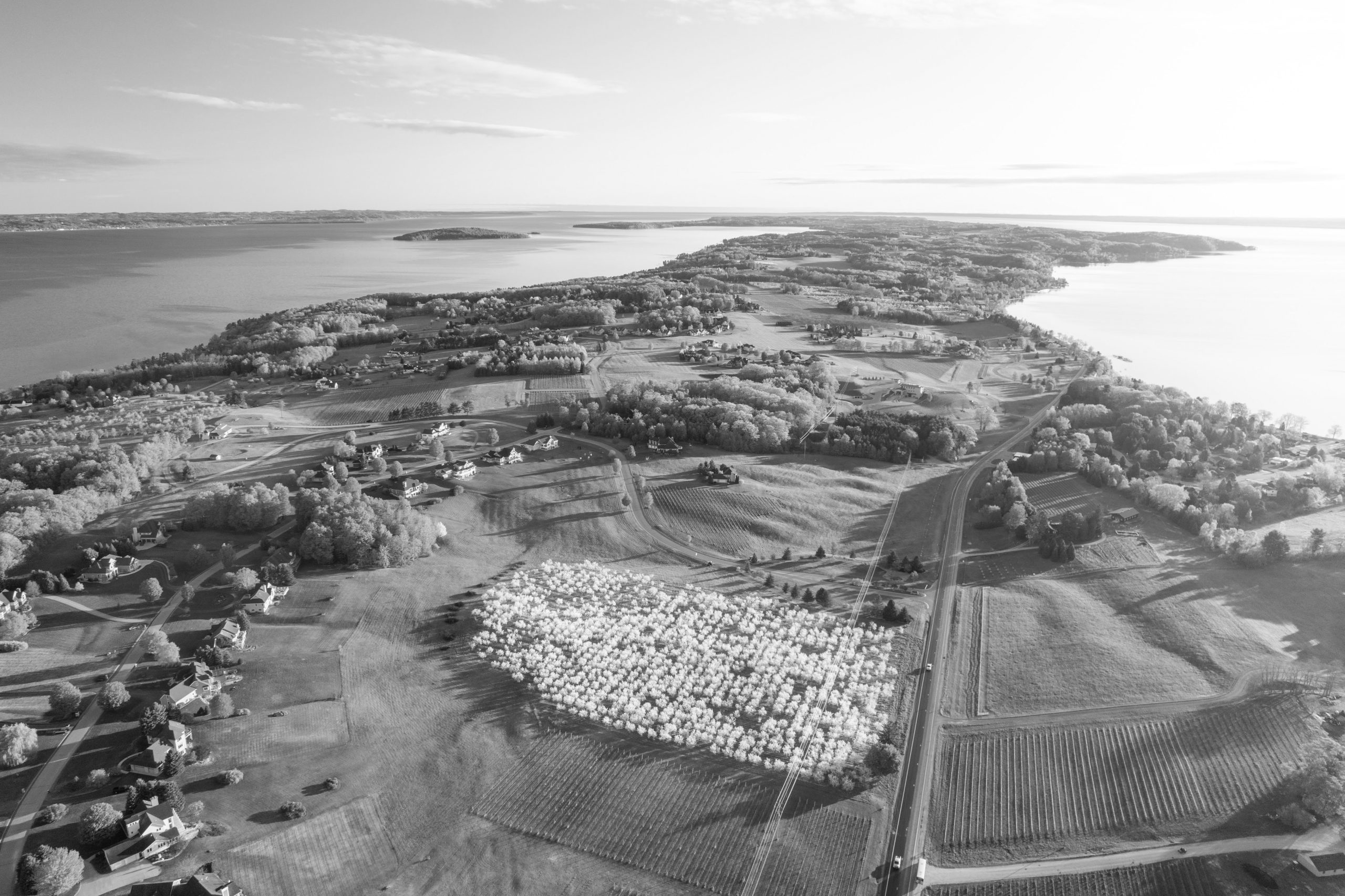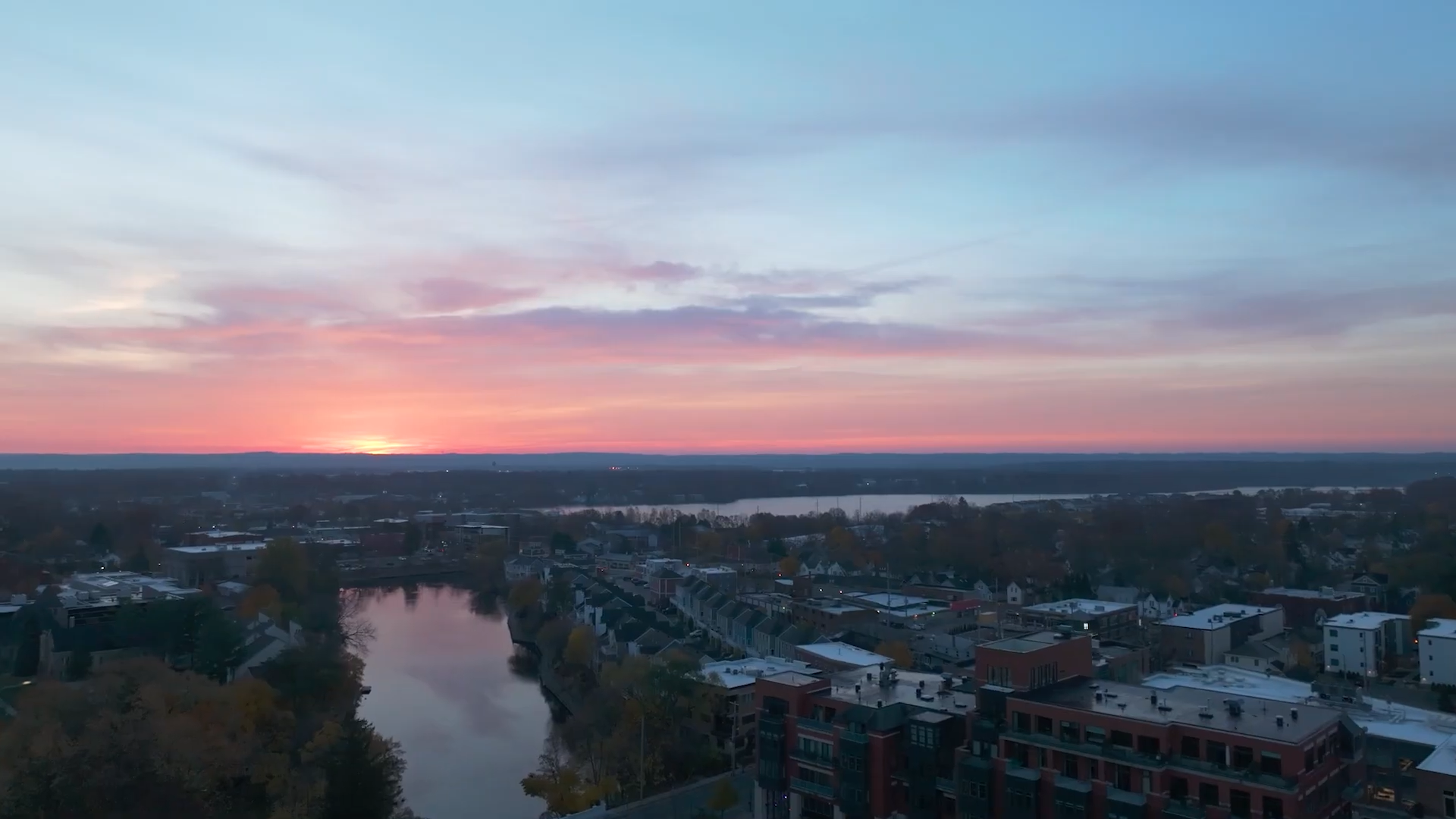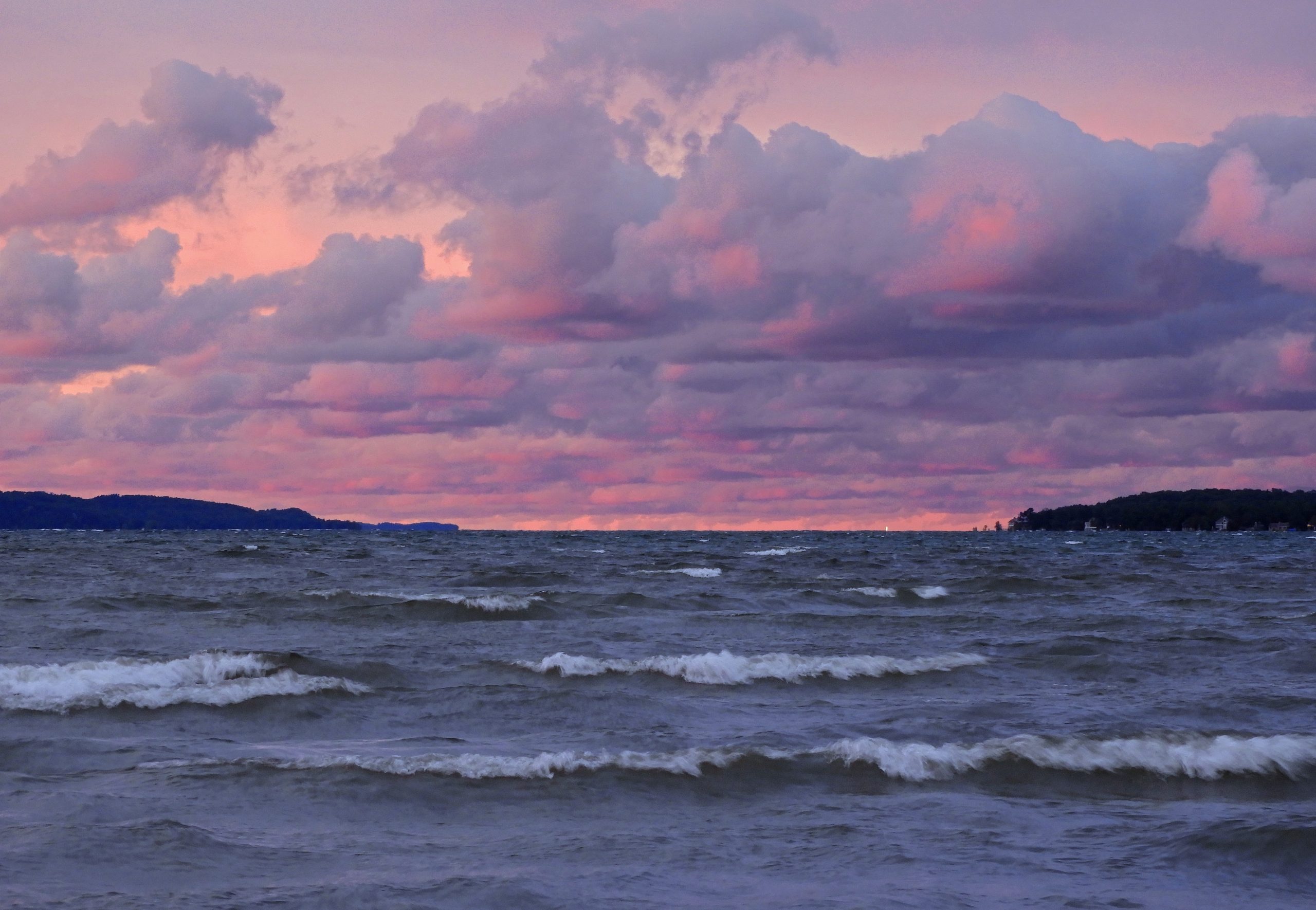Researchers from Michigan State University, University of Michigan, and Wayne State University held a roundtable discussion on May 16 at the Delamar Traverse City on West Grand Traverse Bay with community leaders and lawmakers to discuss the growing concern of microplastics in the Great Lakes. The three universities make up the University Research Corridor (URC), one of the nation’s top academic research clusters and a leading force in Michigan for talent production, academic research, and economic revitalization.
URC experts ‒ including Assistant Professor in the Department of Ecology and Evolutionary Biology at the University of Michigan, Melissa Duhaime; Assistant Professor at Wayne State University School of Medicine, Rodrigo Fernandez-Valdivia; and Assistant Professor in the School of Packaging at Michigan State University, Muhammad Rabnawaz ‒ shared their research illuminating the environmental and health implications of microplastics, small pieces of plastic 5 millimeters (0.2 inches) or smaller, in Michigan’s freshwater ecosystems.
During the roundtable, URC experts revealed the largest classes of microplastics found in the environment (synthetic clothing fibers, fragments, foams, and more) and current research to identify the primary sources around the Great Lakes. They also discussed the carcinogenic effects of plastic pollutants found in our food and drinking water, which predominantly affect women and children. Additionally, the experts discussed potential pathways to address the issue, such as legislation to improve recycling programs, incentives for technological advancements, and the development of affordable alternatives and plastics that are actually recyclable.
State Senator Wayne Schmidt, R-Traverse City, chaired the roundtable discussion, and Traverse Connect’s President and CEO, Warren Call, hosted the event. They said the collaboration with the three URC universities shows how research done on campus has real-life applications for communities around the state, helping solve new challenges as they arise. Together with the business leaders and regional nonprofit organizations in attendance, these gatherings create a united and informed effort to combat microplastics in the Great Lakes.
On the importance of the Great Lakes to the tourism, fishing, manufacturing, recreation, and clean drinking water of the region, Call says, “Our cities, towns and the state of Michigan will struggle to compete if businesses, residents and tourists have to worry about microplastics increasing in the Great Lakes. We appreciate the vital work the URC universities are doing to find and share solutions, especially since many communities are trying to figure out how to what steps to take to deal with microplastics.”

